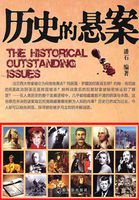After spending a delightful week at Canaan, we departed, with an addition to our party, much to Peter's disgust, of a bright, coal-black boy of fifteen summers. Peter kept grumbling that he had children enough to look after already, but, as the boy was handsome and intelligent, could read, write, play on the jewsharp and banjo, sing, dance, and stand on his head, we were charmed with this new-found treasure, who proved later to be a great family blessing. We were less vivacious on the return trip. Whether this was due to Peter's untiring efforts to keep us within bounds, or whether the novelty of the journey was in a measure gone, it is difficult to determine, but we evidently were not so buoyant and were duly complimented on our good behavior.
When we reached home and told our village companions what we had seen in our extensive travels (just seventy miles from home) they were filled with wonder, and we became heroines in their estimation. After this we took frequent journeys to Saratoga, the Northern Lakes, Utica, and Peterboro, but were never again so entirely swept from our feet as with the biblical illustrations in the dining room of the old Given's Hotel.
As my father's office joined the house, I spent there much of my time, when out of school, listening to the clients stating their cases, talking with the students, and reading the laws in regard to woman. In our Scotch neighborhood many men still retained the old feudal ideas of women and property. Fathers, at their death, would will the bulk of their property to the eldest son, with the proviso that the mother was to have a home with him. Hence it was not unusual for the mother, who had brought all the property into the family, to be made an unhappy dependent on the bounty of an uncongenial daughter-in-law and a dissipated son. The tears and complaints of the women who came to my father for legal advice touched my heart and early drew my attention to the injustice and cruelty of the laws. As the practice of the law was my father's business, I could not exactly understand why he could not alleviate the sufferings of these women. So, in order to enlighten me, he would take down his books and show me the inexorable statutes. The students, observing my interest, would amuse themselves by reading to me all the worst laws they could find, over which I would laugh and cry by turns. One Christmas morning I went into the office to show them, among other of my presents, a new coral necklace and bracelets. They all admired the jewelry and then began to, tease me with hypothetical cases of future ownership. "Now," said Henry Bayard, "if in due time you should be my wife, those ornaments would be mine; I could take them and lock them up, and you could never wear them except with my permission. I could even exchange them for a box of cigars, and you could watch them evaporate in smoke."















